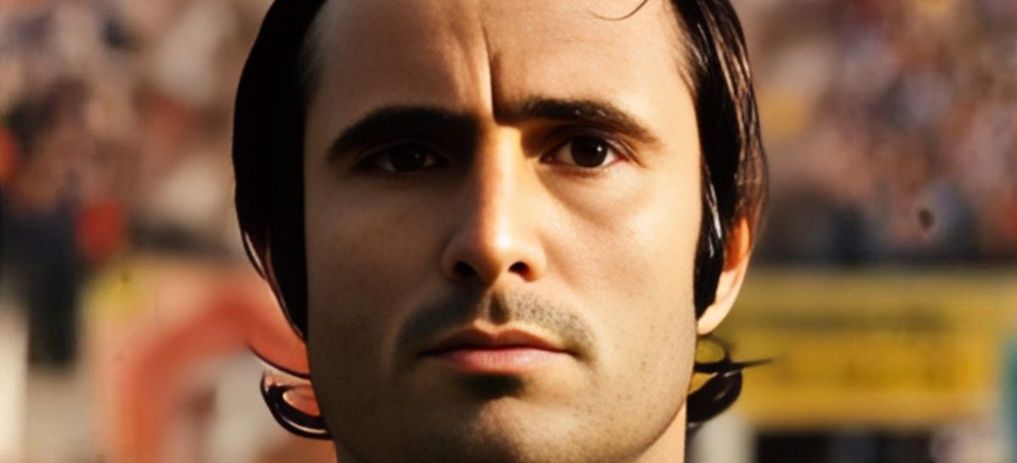When you think of French goalkeepers of the 1970s and early 1980s, your mind may immediately leap to the eccentricity of Joël Bats or the commanding presence of Jean-Paul Bertrand-Demanes, but quietly and consistently, Dominique Baratelli carved out a reputation as one of the most reliable and enduring shot-stoppers of his generation, a man whose career stretched across nearly two decades at the top and who left his mark both at club level and with the French national side.
PART ONE
Born in Nice on 26 December 1947, Baratelli grew up in the Côte d’Azur football culture, where sunshine, street football, and the hum of the Mediterranean set the rhythm of his early sporting education. And while many young boys dreamed of scoring goals, Baratelli was more interested in preventing them, diving across dusty pitches with a fearlessness that would later become his trademark.
Like many local talents, he began at Cavigal Nice, a club that served as a nurturing ground for young hopefuls in the region. His big break came in 1967, when he signed his first professional contract with AC Ajaccio, then a First Division side. Ajaccio may not have been a giant of French football, but for Baratelli, it was the perfect stage to show that he could withstand the pressure of Ligue 1 and, perhaps more importantly, that he had the mentality to survive in a league filled with rugged centre-forwards and booming long-range efforts.
Moreover, his time in Corsica toughened him up. The island’s football environment was known for its passionate crowds and fiercely contested games, and Baratelli thrived in it, quickly establishing himself as a first-choice keeper. For Ajaccio fans, he became a pillar of calm, and correspondingly, for French football observers, he became a young talent worth watching.
In 1971, Baratelli returned to his hometown with a transfer to OGC Nice, and this move proved to be decisive in shaping the next chapter of his career. Nice were an ambitious side in the 1970s, often punching above their weight in the top division, and Baratelli’s consistency between the sticks helped them remain competitive.
Furthermore, it was at Nice that Baratelli’s performances caught the eye of the French selectors. By the mid-1970s, France were looking to rebuild their national team, and goalkeeping options were scarce. Thus, Baratelli’s reliability and composure earned him his first cap, and soon he became part of a goalkeeping pool that would represent Les Bleus in international tournaments.
Notwithstanding the rise of other keepers around him, Baratelli’s reputation grew steadily, not through flashy saves or dramatic antics, but through week-in, week-out dependability, which is often more valuable than one-off heroics.
PART TWO
Baratelli was selected for France’s 1978 World Cup squad in Argentina, and fate gave him an unexpected chance to shine. During the group stage match against Argentina, starter Jean-Paul Bertrand-Demanes suffered an injury in the 55th minute, and Baratelli was called upon to step into the cauldron of Buenos Aires, facing none other than Mario Kempes and Leopoldo Luque. France would go on to lose 2–1, but for Baratelli, the appearance marked a career milestone – he had now played in the World Cup, and few could take that honour away from him.
Similarly, he was part of the squad again at the 1982 World Cup in Spain, although he did not feature on the pitch this time. Nevertheless, being part of that team placed him within the golden trajectory of French football, as Michel Platini’s generation began to emerge and carry the nation forward.
In 1978, the same year as his first World Cup experience, Baratelli switched clubs again, this time heading north to the capital to join Paris Saint-Germain, a club that was still building its identity and striving to make its mark on French football.
What’s more, it was in Paris that Baratelli finally tasted silverware. He won the Coupe de France in 1982 and 1983, victories that helped cement PSG’s rise as a new force in French football. The goalkeeper, already experienced by then, played a crucial role in guiding a relatively young side through the pressures of knockout competitions, bringing calmness when matches grew tense and penalty shootouts loomed.
Therefore, these trophies were not just pieces of silverware for the club but also a fitting reward for a man who had served French football with quiet distinction for so long.
Baratelli’s career statistics are as impressive as they are telling of his consistency. He played 593 matches in the French First Division, making him one of the league’s all-time appearance leaders. To put that in perspective, goalkeepers are supposed to age gracefully, but few keep their place for so long without faltering, and Baratelli was one of those rare breeds.
In addition, he represented France 21 times, and though he was often a backup – called up on 25 more occasions without playing – his role in the squad should not be underestimated. International football requires depth, and France relied on his steady presence to balance the squad and offer reliability in case of injury or suspension.
Remarkably, Baratelli even scored two goals in his long league career, a rarity for a goalkeeper, though both came from the penalty spot rather than some madcap René Higuita-style adventure.
When he retired from professional football in 1985, Baratelli didn’t drift away from the sport. Instead, he stayed connected by becoming a youth coach in Cagnes-sur-Mer, near his beloved Nice. Coaching kids may not have the glamour of playing in front of 50,000 fans, but it carried an impact of its own, as Baratelli passed down lessons of discipline, positioning, and humility to a new generation.
